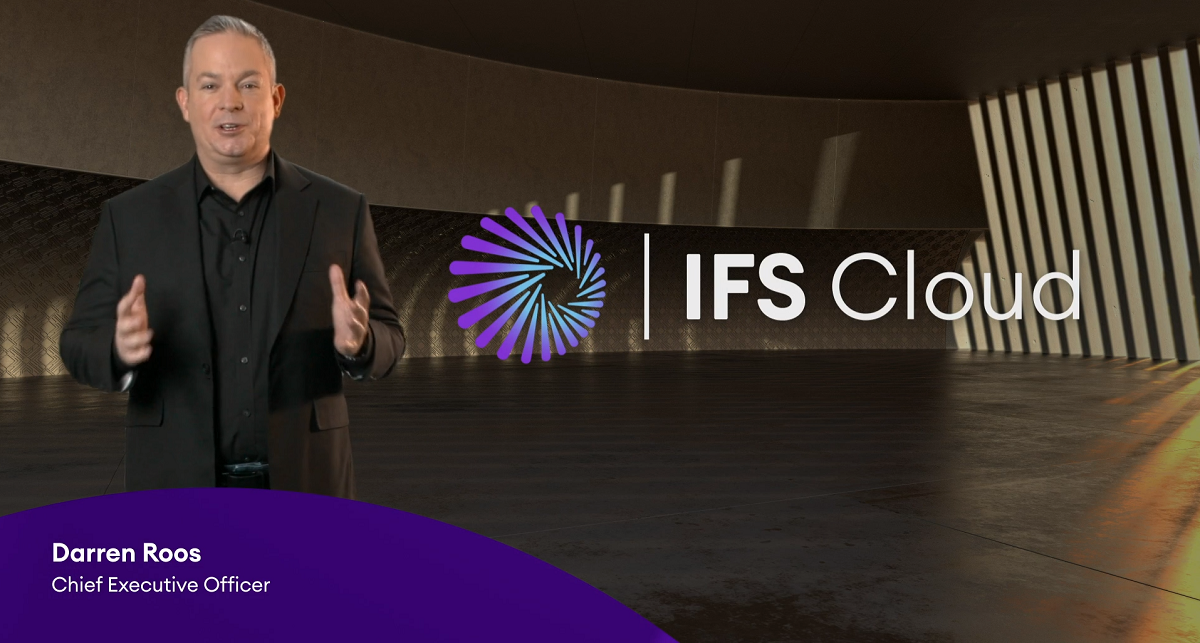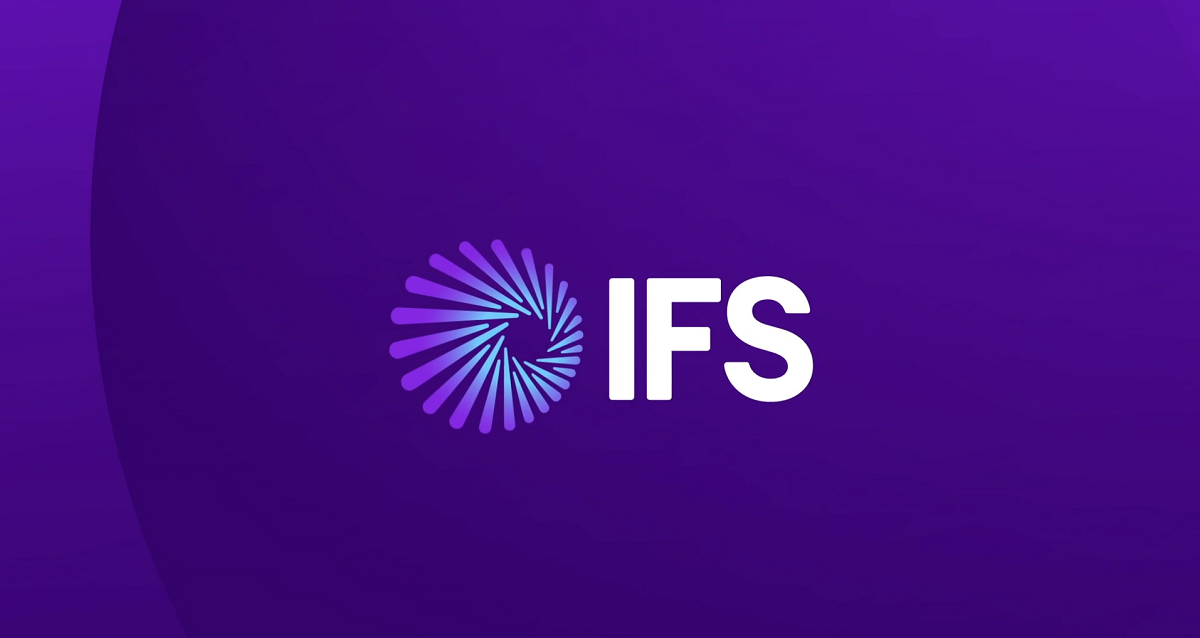There are two ways for enterprise software companies to think about digital transformation—providing services and package pricing to customers to ease them into more transformational technologies is one approach. And certainly, as IFS brings together its multiple software offerings into a single cloud-first product that is cohesive from a technical and functional standpoint, the fact that it will be more economically attractive for our customers to obtain more different parts of our software functionality—and access advanced transformational capabilities—well, that will just be a side effect.
What sets this week’s IFS Cloud launch apart is that we also see a company making huge investments in evolving the application itself on a genetic level, re-engineering and re-imagining it to help customers meet new market realities, adopt new business models, launch new digital products and services and outcompete their rivals through innovation. The way value is created in our economy, where customers see value—both have changed.
Even if you were one of thousands worldwide who joined us for the event in real time, you will find these sessions available on demand useful as you plan investments for the year to come.

Re-engineered for a Moment of Service
What sets IFS Cloud apart, aside from being the first success story of major enterprise software vendors uniting products gained through acquisition, is the fact that IFS is uniting its enterprise resource planning (ERP), enterprise asset management (EAM), field service management (FSM), scheduling optimization and other software into a single cloud-first platform that looks, feels and runs the same on premise or in the cloud. But the underlying goal is to enable IFS Customers to create value in a fundamentally new way—by optimizing business operations around not manufacturing or delivering products or services but rather manufacturing and delivering happy customers—reminiscent of the How Do Customers See Us quadrant in the Balanced Scorecard—now a critical focus of business.
“Every business has moments where they delight or disappoint us,” Roos said. “It might be the moment when we unbox a new product, or when our flight arrives on time, or simply when we step in the shower and there is hot water. There is a lot that goes into making these moments happen. There is a lot of hard work that goes into sourcing, making, packaging, delivering and beyond. At the moment when it all pays off is what we call the Moment of Service. And then companies create loyalty and advocacy, both of which are fundamental to a strong business because loyalty results in repeat business, increased revenue and higher margins.”
Some industries are coming to realize this more rapidly than others—including telecommunications. In an IFS Cloud launch Mindfuel discussion on the current state of the telecommunications industry, it became clear that customer experience is a differentiator.
Technology has a role to play in delivering a reliable, consistent and pleasurable customer experience at scale, from the field service software that supports provision of initial service and reliability to the artificial intelligence (AI)-driven omnichannel communications platforms like one that IFS, in this launch, embeds deeply into its overall solution set.
“Making it easier to communicate with your customer is a key differentiator for telecoms, that are really now just sales and service organizations,” IFS Principal Solution Architect Paul White, who also boasts 20 years of experience at British Telecom, said.
Ray Wang, principal analyst, founder and chairman of Constellation Research stressed that telecom providers will require a complete and integrated view of the customer to deliver seamless service—a challenge with the myriad of legacy systems many are saddled with. Diversity of customer preferences is also something telecoms will deal with, according to Wang.
“Some people want automation, some people don’t—getting that personalization going forward will be very important,” Wang said. And while he is normally the person dialing #0 for a live agent, he said he recently transferred to a new mobile operator in a single call, a significant Moment of Service.
“But I should have done it all self-service,” Wang said. “They had my interaction history, they had my knowledge base, they knew exactly my usage pattern and they offered me a better plan that helped me save money.”
One of the significant developments in IFS Cloud is that transformational technologies from augmented reality to AI and machine learning are embedded in the core transactional and operational functionality. This could help IFS customers make intelligent decisions about four inflection points Wang laid out:
- When will you intelligently automate all your processes? How do you accomplish this if there are multiple disparate systems that must be strung together?
- When do we actually augment the machine with a human to break those algorithmic rules to add the human touch?
- When do we augment humans with automation to achieve decision velocity—for environments where thousands of data-driven decisions per second are required?
- When do we apply the human touch and human judgment to decisions that would otherwise be automated?
A platform for innovation
Harnessing advanced technologies in the context of all the data, processes and operations that enable a positive Moment of Service is a complex problem, but IFS Chief Product Officer Christian Pedersen and Chief Technical Officer Dan Matthews laid out how IFS enables a single and transparent approach to how value is created and delivered to the customer by bringing IFS software together with “a single consistent user experience, a single technical architecture, a single consistent data model and a shared update cadence that is completely open to external applications, inside and outside your business.”
This means that a product may be designed, manufactured, sold and then serviced over its lifecycle and then refurbished, remanufactured or recycled in a single software environment for full control over the customer experience. And portions of the lifecycle touched by external technologies or parties like suppliers, vendors, contractors and the customer can be included because IFS Cloud is designed to be open and extended in this fashion on a more granular level even than earlier IFS products.
Pedersen told Diginomica’s Jon Reed that bringing together the different products in IFS’s portfolio was a top priority right from the start of his tenure with the company.
It was a pleasure, as always, to sit down with @jonerp at @diginomica. Check out his take on #IFSCloud ?
https://t.co/clZlzowU53— Christian Pedersen (@WorldBizBuz) March 11, 2021
“When I joined IFS, Darren and I discussed the whole portfolio of assets that we had as a company,” Pedersen said. “The problem was: they were individual assets. We were great in this over here, and we were great in that over there. But it didn’t really come together from a customer perspective. Well, it did come together in the traditional way these things come together. But we wanted to do better.”
In the keynote, IFS CEO Darren Roos shared customers feel the need to change and innovate rapidly but are held back by technical debt and the complexity of optimizing processes across multiple integrated systems.
“In all my customer discussions, I consistently hear that widespread market disruption over the last year is accelerating digital business models,” Roos said “They need to change or adapt business model using technology in the cloud. And only cloud platforms can provide the agility, scalability and innovation required to be successful.”
Roos stresses that while 90 percent of companies are accelerating their investment in digital transformation, many struggle to leverage innovation throughout the business and drive efficiencies and improve their product and service offerings.
Uniting IFS’s products, according to IFS Vice President of CRM Praveen Vemula, delivers a single platform for innovations including augmented reality (AR) and AI-powered optimization, intelligent processes and machine learning services that can be rolled out inside the applications.
“Our single tech platform brings with it a set of new application services that bring intelligence and automation to some of the most critical business operations our solutions support and are ready to use out of the box,” Vemula said. “These capabilities are embedded right in the heart of the product, natively. These are not bolt on applications or software technologies. And these are not technologies where you have to run expensive trials or proof of concepts at great cost and risk.”

Industry depth
The IFS Cloud Launch sessions go deep into the industry-specific software IFS delivers, and executives in these industries will find insights on how to succeed in their own sector. Right in the keynote, IFS discrete manufacturing customer Cimcorp demonstrates how they have been able to give their customers deep insights into their productive and delivery capacity in real time, giving customers a sense of control over the capital equipment projects they work on together.
Panel discussions include among others construction experts exploring how contractors can increase productivity through modern methods of construction (MMC) and building information modeling (BIM)—and manufacturing thought leaders discussing the rise of the circular economy, which will place a premium on reverse logistics and deep lifecycle information on products manufactured and sold.
“In a viable circular economy, you need to know exactly which components were used in original manufacture and if any of them were changed in maintenance,” IFS Vice President for Manufacturing Colin Elkins said in one Mindfuel session. “You then need to know what in each product you can reuse or recover or refurbish. That data is often not accessible … It is better to scan a serial number and find out exactly which components are flagged for recovery for further use, or to be remanufactured or recycled. A solution that can hold this information in accessible fashion maximizes utility of the data.”
The continuing focus on deep industry expertise was not lost on industry analysts attending the event.
“What I like about IFS is they are much more aligned with trends in industrial sectors, including field service and complex asset management and maintenance,” Deal Architect principal Vinnie Mirchandani told Jim O’Donnell of TechTarget. “They’re not just trying to sell their financials and human resources functionality like many of the ERP vendors and spray painting some industry features around it.”

Missed the IFS Cloud launch event? Access the on-demand IFS Cloud sessions here.
Do you have questions or comments?
We’d love to hear them so please leave us a message below.
